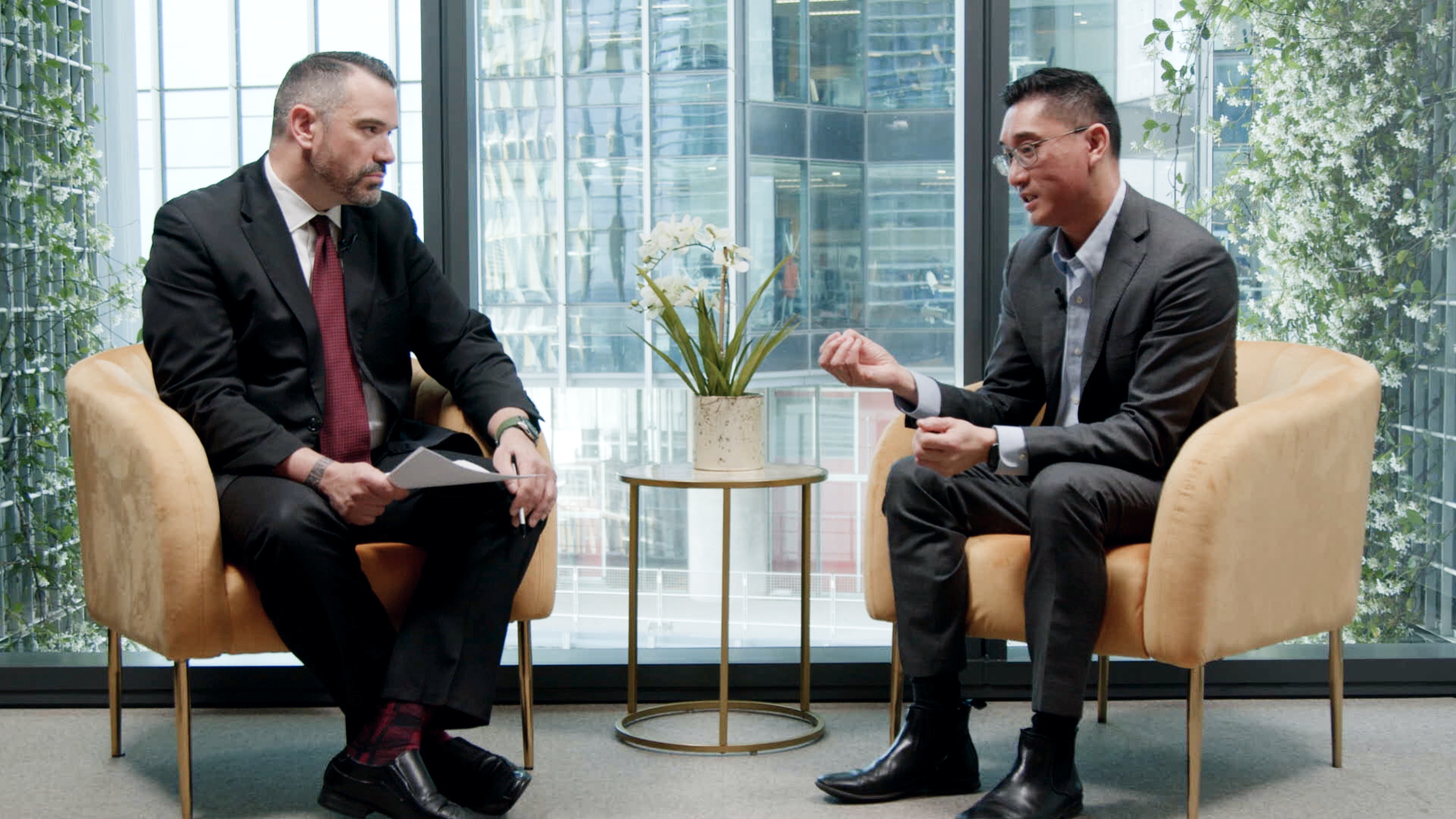The investing mistakes you don't even know you are making (and how to overcome them)
Note: this interview was recorded Wednesday 23 October, 2024
Over the 100,000-odd years human beings have been on the planet, we’ve developed mental shortcuts that have made us successful.
These shortcuts, or biases, occur outside of our conscious awareness and allow us to make quick decisions – like automatically running when you hear a lion’s roar in close proximity.
And while these biases served us well when we were endeavouring to expand beyond the plains of Africa, they don’t serve us so well when it comes to investing, according to Benjamin Leung, Macquarie Asset Management’s Head of Systematic Investing.
“Ultimately, these are mental shortcuts that actually made us successful as humans. So, displaying these behaviours actually makes you a great example of being a human," Leung says.
"But sometimes, they just don't work so well in the financial world. And that's the challenge; the behaviour themselves is not an issue, it's just whether they're effective in a financial context."
He cites the chameleon effect (copying what everyone else is doing), asymmetric risk aversion (favouring certain outcomes over uncertain ones), and the IKEA effect (placing a disproportionately high value on things we partially created) as biases that could lead to negative outcomes in the investment world – and this is to say nothing of our willingness to buy lottery tickets, despite the infinitesimally small chance of winning.
As you might expect, the goal of Leung and his team is to understand, quantify, and ultimately profit from these biases, either by eliminating them or taking advantage of the fact they exist. But he’s keen to point out that it’s not a black box, where one can see the results but not the logic behind them.
Rather, Leung endeavours to make sense of an increasingly complex world by using vast amounts of data, leaning on concepts fundamental investors use, and constantly refining the system.
“There is an interaction of investors with that fundamental [analysis], and there's interaction between investors as they interact with that fundamental," Leung says.
“And because of our behavioural biases, we find that those interactions are often sub-optimal and they create opportunities for our process."
In the following episode of The Pitch, Leung shares more about biases, the research that sits behind them, and how he and his team overcome and profit from them.

Edited Transcript
Chris Conway: Let's start at the beginning, what is systematic investing?
Benjamin Leung: Systematic investing is a passion of mine, I've been doing it for 20 years. I feel like systematic investing really is a natural evolution of some of the classical investment principles, but, in light of the increasing complexity of the world, in light of all the increasing knowledge we have of how the markets function and how investors respond to the markets.
It is ultimately also a process to lean into some of the benefits of the latest technology that we are uncovering with AI and data.
At its core, it's utilising many of the principles our investors would be familiar with. We are not a black box process. We are not seeking correlation. We are not high frequency.
We're leaning on similar concepts that a fundamental investor would utilise in the form of valuation, in the form of assessing the quality of the company. But building on top of that with the knowledge that those fundamentals don't exist in a vacuum. There is an interaction of investors with those fundamentals, and there's interaction between investors as they interact with those fundamentals.
Because of our behavioural biases, we find that those interactions are often sub-optimal, and they create opportunities for our process. The systematic portion refers to our mission: We want to create a transparent process for deploying that insight into the financial markets in a way that brings scale.
So, we're covering 3,500 stocks across the investment universe for our investors in a way that makes the most of technology and data. Each of our investment decisions uses billions of data points, ultimately creating a process that translates into a more reliable, robust, and repeatable source of return for our clients.
Chris Conway: Ben, you talked there about some of the biases that we humans exhibit as investors. What are some of the common ones?
Benjamin Leung:
I would take a step back, these biases actually interfere with our general decision-making, not just investment decisions. And the interesting thing about these behavioural biases, once you learn about them, you start seeing them in your own behaviour.
In that moment of quiet reflection, you go, "Oh, no, hang on. I just gave into that particular bias".
The more common ones; people have a tendency to copy what other people are doing, particularly when there's incomplete information. If you think about all those pranks where people just stare into the space and everybody starts looking.
When you're looking for something to eat at lunch, you just gravitate towards the one with the longest line. Those are all exhibits of that behavioural bias.
We, as humans, have a tendency to be asymmetrically risk-averse. And if you think about how things work in the natural world, there's such a great risk of getting injured or falling ill that, to be successful, you have to place a particular emphasis on the downside.
Conversely, we actually have a preference for lottery. The chance of winning a lottery, as we all know, is minuscule, and yet, hundreds of thousands of people participate in this competition every single day.
One of my favourites, and maybe related to DIY enthusiasts, is the IKEA effect - the furniture-making company. For whatever reason, we just think the stuff we put together or ideas that we bring forward is so much better than everybody else's.
And you can see how that can create challenges in the investment context.
And I guess that the bias gives them a bad rep, but ultimately, these are mental shortcuts that have made us successful as humans.
So, displaying these behaviours actually makes you a great example of being a human. But sometimes it just doesn't work as well in the financial world. And that's the challenge. The behaviours themselves are not an issue, it's just whether they're effective in the financial context.
Chris Conway: Ben, some really great examples there that I'm sure everyone can relate to. So now that we're aware of them, what research suggests that they're a problem when it comes to investing? How does having a systematic approach help overcome them?
Benjamin Leung: There's a great deal of research and, in our own experience, to support that these behaviours do occur in the markets. And for people who are interested, there are a lot of easily accessible materials.
Books like Thinking Fast and Slow and Predictably Irrational cover the pitfalls of these biases in the context of investment decision-making.
In the context of the financial markets, if we look at the examples that I've talked about, herding obviously creates trends and can create trends that lead well beyond a rational valuation, both on the upside and on the downside.
In terms of risk aversion, a stock that's fallen or has experienced a large drawdown are shunned by investors to the extent that they would potentially overlook great valuation opportunities.
In terms of the lottery effect, there's the likelihood that you overpay for the pursuit of 10 baggers. And the IKEA effect ultimately is you tend to hold onto your own stocks for far too long.
These are all opportunities and concepts that we captured in our process. And in our 30 years, we've explored thousands of these factors to distil down to the metrics that we feel would most likely predict investor behaviour in the future.
Chris Conway: Ben, a nice segue that you've provided there. Is the role of systematic investing to eliminate biases and invest more purely, or is it to take advantage of the biases that are always going to be prevalent in other investors or both?
Benjamin Leung: The answer is actually both. And I feel like our track record and our success gain credit from doing both of those things.
We have great admiration for classical investors who are able to fight against their tendency and their behavioural biases to make bold bets. But what systematic offers is that you don't have to fight every fibre of your being with every investment decision.
The systematic process allows you to do that in a very natural way and also allows you to do it in a way so that you can create a better and better mousetrap for these behavioural biases, both for our clients and also to protect our clients in our own investment process.
Chris Conway: Once these biases are quantified, factors are then used to capitalise on them. Can you give us a real-life example of what that looks like?
Benjamin Leung: If I just take the herding example where trends are created and continue generally for a period of time, a really simple way to implement that observation is simply by buying stocks that have gone up and avoiding stocks that have gone down.
Of course, to identify that, you can use the price appreciation in the last six months. You can continue to enhance that metric to give you greater efficacy. We would do would reinforce that metric with traded volume, so things that have greater traded volume, display greater conviction.
You can enhance that with a level of valuation to work out whether it's overstretched or how much it's overstretched by. And, of course, you can deploy sophisticated techniques like AI and things like that to further enhance the metric.
Ultimately, that's the process we go through when we create a factor. And as I was saying before, we've gone through a journey of refinement over the 30 years.
In our factor toolkit, not only do we have sentiment indicators which I just shared, we have quality metrics, we have valuation metrics.
We have insights on how informed traders are thinking about the markets. We have insights as to how long-term holders are thinking about the markets. And ultimately, we're trying to bring all of that together in a robust and transparent way to create that source of alpha that we spoke about at the beginning.


Discover Macquarie’s Core Equity Active ETFs
Macquarie Systematic Investments has spent over 30 years evolving a robust systematic process that has delivered long-term, consistent returns across a range of strategies for leading super funds and institutions, and now bring two core active ETFs to the Australian market.
Explore more at etf.macquarie.com.
3 topics
2 stocks mentioned
2 funds mentioned


